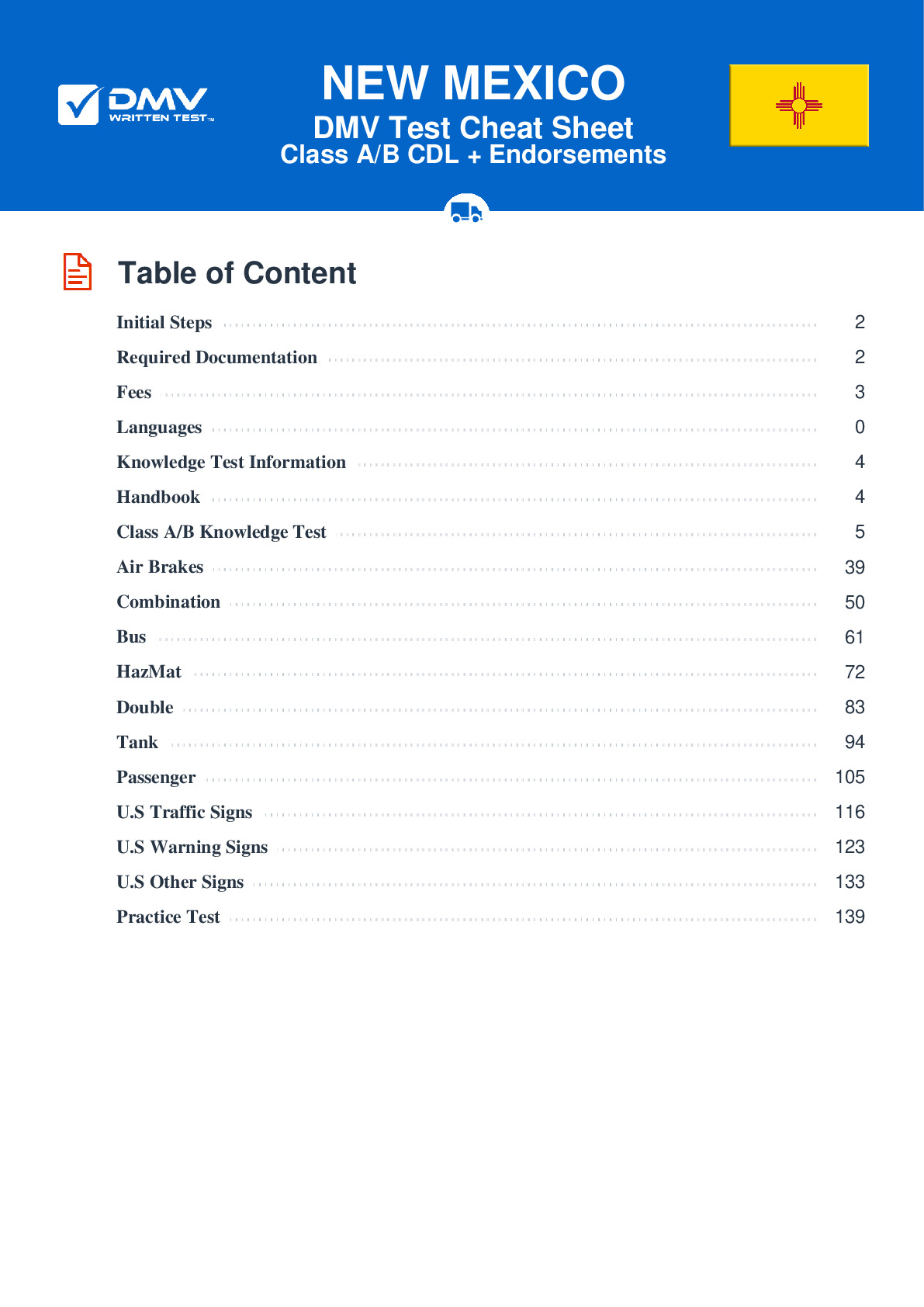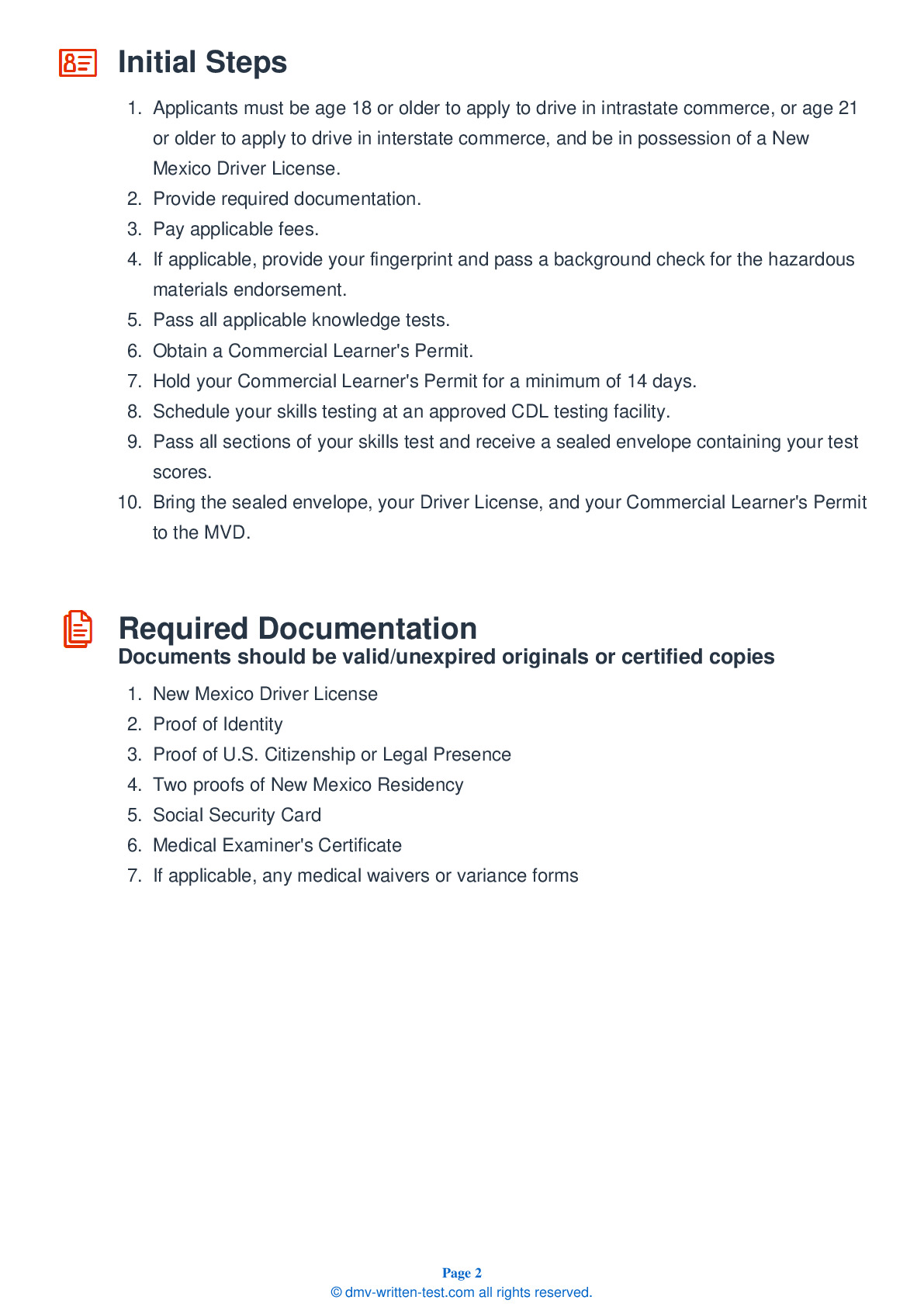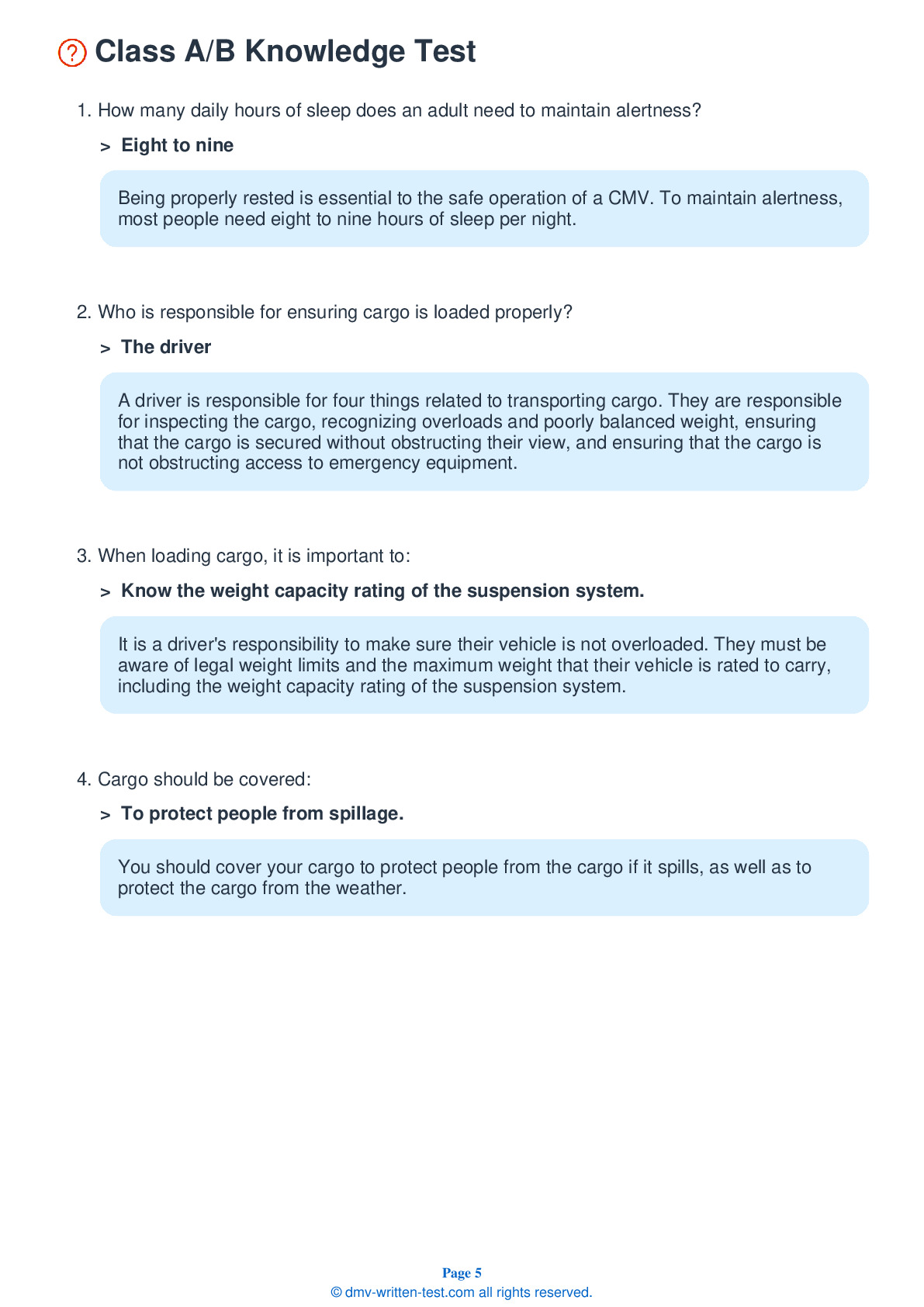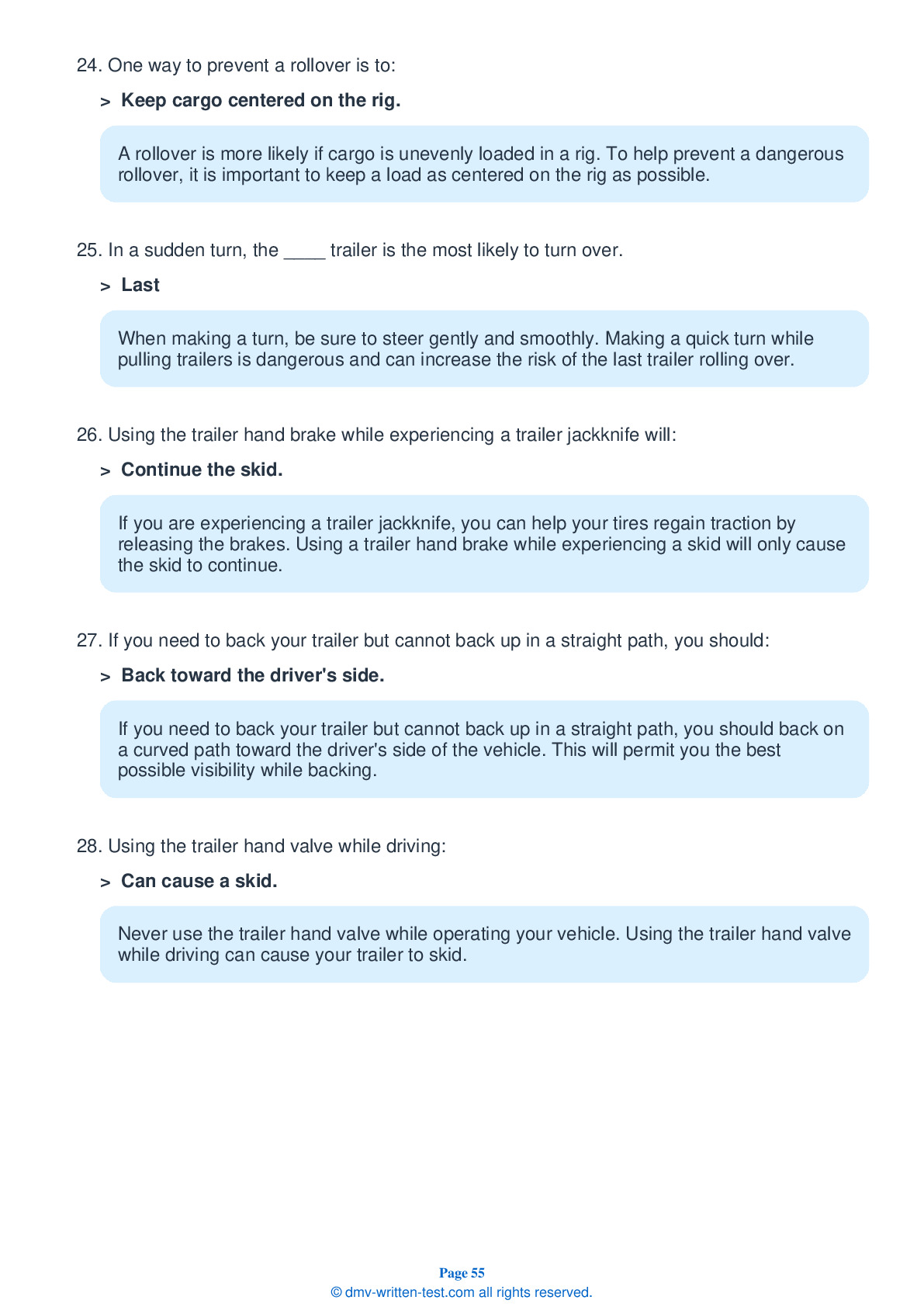Air Brakes
This endorsement is required for driving a vehicle with air brakes. To receive this endorsement, applicants must pass a written test. The test consists of 25 multiple choice questions. Each question has three answer choices. To pass, the applicant must answer at least 20 questions correctly. Test questions come from the New Mexico Commercial Driver License Manual. Questions come from the chapter covering: Air Brakes. The Air Brakes endorsement may be used with the Class A, B or C CDL.
Number of Question
Passing Score
19. Air brakes use ____ to function.
Explanation
The brakes in an air brake system use compressed air to function properly.
20. An alcohol evaporator is especially important:
Explanation
Some air brake systems contain an alcohol evaporator. This evaporator introduces alcohol into the system to help prevent ice from forming in cold weather.
21. When an S-cam turns inside a brake drum, the S-cam:
Explanation
When a brake pedal is pressed and the S-cam is turned, the S-cam presses the brake shoes against the inside of the brake drum. This causes friction and will cause the vehicle to slow.
22. While driving, ____ generally holds spring brakes in place.
Explanation
While driving, spring brakes are generally held in place by air pressure. If the air pressure gets low enough, the springs will activate the brakes.
23. If the safety relief valve in the air brake system releases air:
Explanation
An air brake system has a safety relief valve, which releases air from the tanks if the pressure gets too high. If the valve must operate, something in the system is wrong and should be addressed by a mechanic.
24. Air tank drains should:
Explanation
In an air brake system, air tank drains are used to remove water and compressor oil from the air tanks. When operating a drain, be sure to drain the tank completely.
25. If you are braking on dry pavement while traveling at 55 mph, how much distance will brake lag add to your overall stopping distance?
Explanation




